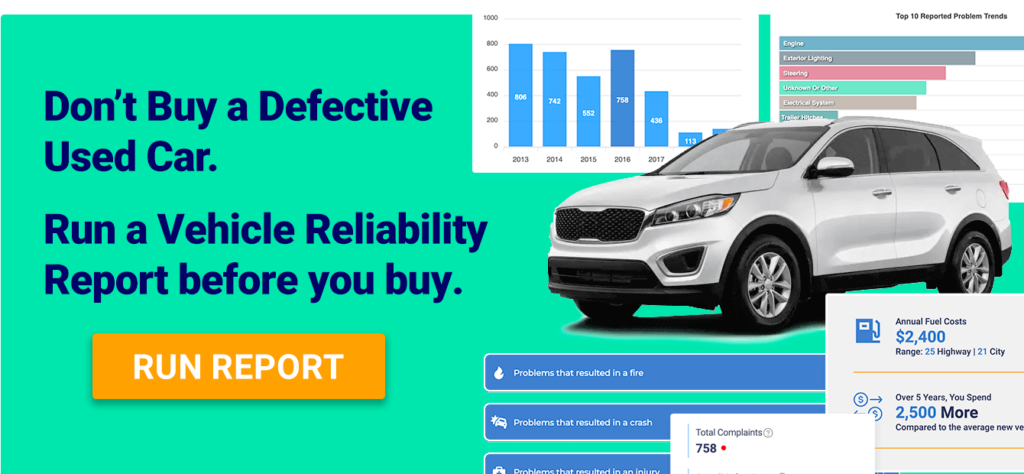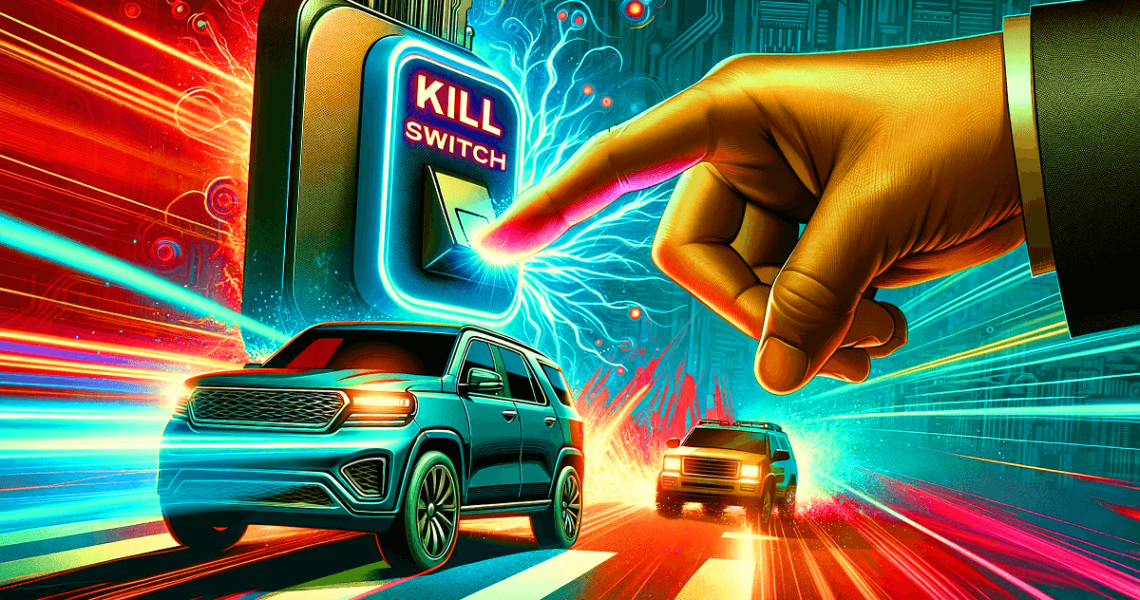Imagine you’re driving on a quiet road when suddenly your car comes to a screeching halt, and you have no control over it. This might sound like something from a sci-fi movie, but it may very well become reality for all new cars by 2026.
A new proposed law will require every vehicle sold after 2026 to have a ‘kill switch’ that can shut down the engine remotely.
Now, this isn’t just about turning off engines; it’s stirring up lots of chatter about safety and privacy.
Here’s one thing for sure: the goal behind this big change is to make roads safer by preventing impaired or dangerous drivers from causing harm.
And with the advent of new technology, concerns often arise – could this technology potentially be misused to invade our personal lives without our consent?
Let’s dive into what the potential of a kill switch law means for all of us, looking at both the cool perks and the not-so-cool concerns.
The Law Mandating a ‘Kill Switch’ in All Cars from 2026
The proposed law requiring a ‘kill switch’ in all cars from 2026 aims to improve public safety by allowing law enforcement to remotely shut down vehicles in case of emergencies or impaired driving.
However, concerns have been raised about the potential for privacy invasion and government control over vehicle technology.
Purpose of the Law
Section 24220 of the Infrastructure Investment and Jobs Act mandates that by 2026 cars must come with a ‘kill switch’. This tool can turn off the car if needed. It’s there to make roads safer and stop bad driving like when people drive drunk or too fast.
Stopping high-speed chases before they get dangerous is another big reason for this law.
Cops and other safety workers believe the kill switch will help them do their job better. They see it as a way to keep everyone on the road from getting hurt by drivers making poor choices.

Possessing such capability could prove invaluable in high-speed pursuits, potentially safeguarding lives.
Concerns About Privacy and Government Control
While the law has good intentions, many people worry about their privacy. They fear giving the government too much power to control their cars. Privacy is a big deal because our cars already know a lot about us.
Where we go and when can tell someone plenty. If the government could track this, it would be like being watched all the time. Naturally, this scares those who value their freedom and don’t want to be under constant surveillance.
Some argue that without strict rules, police or other agencies might use these kill switches wrongly. In fact, former U.S Rep Bob Barr thinks that with this law, officials could abuse their power over people’s privacy.
There are a lot of things we don’t know yet about the proposed ‘kill switch’ technology. For example, will it use cameras? Will insurance companies have access to the data without permission? Will drivers have to consent to this every time they use the vehicle?
And how long it will take to get a vehicle working again if authorities use this tech to cut power to a vehicle.
And finally, if the Fourth Amendment will be followed when authorities have access to this kind of surveillance.
There’s also worry that others might hack into car systems since they are linked to wireless networks, which cybersecurity experts say increases risks of unauthorized access.
People want their civil liberties protected and feel uneasy not knowing if courts will check on how the kill switch is used.
Potential for Abuse and Access by Unauthorized Parties
Privacy issues lead us straight into the risks of the kill switch being misused. There could be some bad outcomes if someone who should not get their hands on this power does.
Imagine hackers or people with bad intentions controlling when a car can move or stop – that’s scary! They might use this for stealing cars, messing with traffic, or even worse things.
The law right now doesn’t tell us enough about how to keep the system safe from these dangers. People like former U.S. Rep Bob Barr are worried that without strict rules, our personal car info could end up in the wrong hands.
And it’s not just outsiders we have to watch out for; police and others might touch our cars’ systems without asking us first.
To make sure everything is fair and safe, there’s talking going on about whether cops need a warrant before they can flip a car’s switch off.
If we’re not careful, our rights and privacy could slip out of our control bit by bit without us noticing until it’s too late.
Impact of the Law
The proposed law mandating a ‘kill switch’ in all cars from 2026 will have advantages for law enforcement and public safety, but it also raises concerns about driver safety and privacy.
Advantages for Law Enforcement and Public Safety
Law enforcement and public safety could benefit significantly from the mandated ‘kill switch’ in all cars by 2026. This technology would allow authorities to immobilize vehicles, preventing dangerous high-speed chases and reducing risky situations.
It offers a tool for law enforcement to remotely shut down a vehicle operated by a drunk driver or stop stolen cars. No doubt, enhancing public safety while supporting police efforts.
The introduction of this technology can potentially eliminate the need for perilous police pursuits, leading to fewer accidents and injuries on the roads.
Additionally, it provides an effective means of preventing drunk driving incidents by enabling law enforcement to immobilize vehicles driven by individuals under the influence, ultimately contributing to overall public safety enhancement.
Safety Concerns for Drivers and Privacy
However, privacy issues are a major concern with the mandatory installation of the ‘kill switch’ in cars. There’s worry about government surveillance and potential for remote access, raising cybersecurity threats and privacy invasion.
Former U.S. Rep. Bob Barr also voiced that the law lacks details, sparking fears about its abuse to track driving behaviors or even shut down vehicles without proper authorization. Rep. Harriet Hageman, R-Wyoming, voted to defund the kill-switch mandate.
While advantages of this technology include curbing drunk driving and reducing police pursuits, these come at the expense of compromising drivers’ privacy.
Is the ‘Kill Switch’ for Cars a Road Safety Necessity or a Privacy Concern?
As we approach the era of cars potentially equipped with a ‘kill switch,’ it’s clear that this development raises concerns about privacy and personal freedoms. Especially with the potential for it to become law.
So what do you think? Do you view this tech as necessary for road safety, or do privacy and government control concern you?
Share your thoughts in the comments below.👇

Managing Editor
Christopher is an automotive technical writer. When he’s not at the local autocross event, he can often be found working on one of his cars. Specializes in automotive class action law, industry trends, and automotive maintenance. Email me direct, or learn more about us


Hollywood Mozart
December 19, 2023 at 8:53 pmI reposted this topic on a Nextdoor site in Los Angeles and was kicked off the site because they said it was a national problem and didn’t apply locally.
I live in an area that has the highest priced insurance in America, and the most dangerous not just because of the reckless drivers, but because of the theft and vandalism.
For the life of me I don’t know why something as important would be not considered a local issue to vehicles here. Sounds like more of a bot problem finding words somewhere in the copy that have not been clearly defined that automatically blocks applications and also suspends the poster.
Anyone else experience this?
J. Krahn
December 15, 2023 at 6:24 pmWith our NA Communist Governments now monitoring speech on social media, I have no doubt that they will pull that killswitch for nefarious purposes … if you say anything against their agenda, they’ll pull it.